Once you start reading the ingredient labels on your personal care and cleaning products, you’ll likely notice one particular family of ingredients that are common in a lot of them: sulfates. Specifically, Sodium Laureth and/or Lauryl Sulfate (SLS/SLES). These are two of the most common sulfates used in haircare today.
In this article, we’re going to talk about what exactly SLS and SLES are, and why you want to be wary of them when it comes to your shampoo and other personal care and cleaning products.
Table of Contents
- What is Sodium Lauryl Sulfate (SLS)?
- What Does Sodium Lauryl Sulfate (SLS) Do in the Body? Is it Safe?
- Is SLS an Irritant?
- Is SLS a Carcinogen?
- Bottom Line on SLS
- What Is Sodium Laureth Sulfate (SLES) and How is it Made?
- So, Which is Worse: Sodium Laureth Sulfate or Sodium Lauryl Sulfate? Is Sodium Laureth Sulfate Bad for Hair?
- What is a Surfactant and Is It Bad for Hair?
- What Is The Difference Between Sodium Laureth Sulfate And Sodium Lauryl Sulfate for Hair?
- Other Common Questions About Sulfate-Free Shampoo
- Does Your Hair Have To Get “Used To” Sulfate-Free Shampoo?
- Does “Sulfate-Free” Always Mean “Safe?”
- Does Sulfate-Free Shampoo Cause Hair Loss?
- Does Sulfate-Free Shampoo Lather?
- Non-Toxic, Sulfate-Free Shampoos We Recommend
- Best Sulfate-Free Dandruff Shampoo
- Conclusion: The next time you buy shampoo, check the label and skip the SLS & SLES!
What is Sodium Lauryl Sulfate (SLS)?
Before we can understand SLES, we have to understand it’s parent chemical: SLS.
Sodium Lauryl Sulfate, or SLS, is a chemical surfactant that causes the foaming activity in a lot of products like shampoo, toothpaste, laundry detergent, hand soap, and more (we’ll talk more about surfactants is in a minute). SLS also helps to keep the various product ingredients from separating and is used in some food and drink products (like marshmallows and fruit juice) as an emulsifier or thickener.
SLS can be made one of two ways:
- either with petroleum, through the OXO process
- or from coconut or palm oil, through the Ziegler process (it’s important to know this because SLS can be marketed as “plant-based” or “plant-derived”)
Both of these methods extract fatty acids from the oils and then convert them to fatty alcohols. From there, the alcohols go through a sulfonating process to be made into a salt.
Other names for SLS include sodium dodecyl sulfate, dodecyl sulfate, sodium salt, and sodium n-dodecyl sulfate.
This post may contain affiliate links, which means we may earn a small commission if you choose to make a purchase. We only make recommendations that are genuine and meet our ingredient/material safety standards.
[ Related: The Best Sulfate-Free Conditioners ]
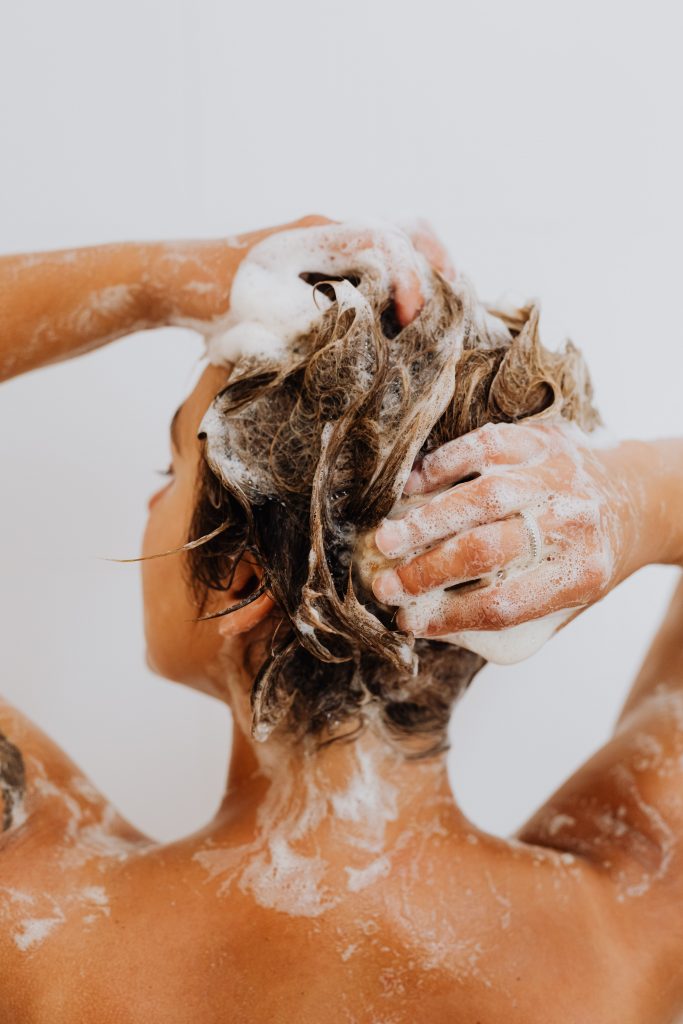
What Does Sodium Lauryl Sulfate (SLS) Do in the Body? Is it Safe?
One of the problems with SLS is that it’s a bit controversial. While many people believe that it’s a toxic ingredient, much of the evidence states otherwise. So, what’s the deal?
According to our current evidence, SLS is considered safe for most people in certain contexts and usages. That being said, SLS has been found to be an irritant when:
- it’s kept on the skin for a longer amount of time (length of exposure)
- it’s used in higher concentrations
Considering that SLS is most often used in products that are washed right off, the length of exposure issue shouldn’t be a problem for most consumers.
It’s almost impossible, however, to determine the concentration levels of SLS in your products; it’s been found to be anywhere from 0.01% to 50% in cosmetics and 1% to 30% in cleaning products… that’s quite a range.
Is SLS an Irritant?
Even though SLS has been determined to be safe in certain concentrations and usages, it is definitely an irritant. We know this because it’s actually used in research as a “primary irritant.” When researchers want to study something to see if it helps or heals skin irritation, they put SLS on the skin first in order to induce irritation.
Is SLS a Carcinogen?
Although there have been claims that SLS can potentially cause cancer, there is so far no evidence that supports that claim.
Bottom Line on SLS
Unfortunately, SLS is one of those ingredients that you’ll just have to decide for yourself whether or not you want to use it. While SLS is not known to cause any significant harm (like cancer), it may not be a good choice for those with sensitive skin, eczema, dry or damaged hair, or for babies/kids. If you are having skin issues, you may want to consider taking products containing SLS out of your routine and see if it makes a difference for you.

What Is Sodium Laureth Sulfate (SLES) and How is it Made?
Alright, so now that we’ve got the lowdown on SLS, let’s move on to its sister chemical: SLES.
Sodium Laureth Sulfate (also sometimes listed as Sodium Laureth Ether Sulfate) is made when SLS is put through the ethoxylation process.
The thing about SLES is that it’s a milder surfactant than SLS, which means it’s less likely to irritate the skin.
The problem with SLES, however, is with the ethoxylation process that it goes through. The process involves ethylene oxide and 1,4-dioxane, two chemicals that can cause serious health issues. Ethylene oxide is known to cause multiple types of cancer and infertility, and 1,4-dioxane is a carcinogen.
As an end product, SLES can be contaminated with these two chemicals; however, because they’re not added intentionally, they would never be listed on the ingredient list.
For this reason, SLES should be avoided when possible.
So, Which is Worse: Sodium Laureth Sulfate or Sodium Lauryl Sulfate? Is Sodium Laureth Sulfate Bad for Hair?
TL;DR: When it comes to short-term things like skin irritation and hair dehydration, SLS is worse. But when it comes to more long-term health concerns like cancer and infertility, SLES is worse.
Although SLES may not be as bad for your hair in the short term, it can cause serious health concerns in the long term.
Body
Is Hemp Shampoo & Conditioner Good for Hair? (+ Best & Worst Brands)
Is hemp seed oil good for your hair? Can it make you high? Plus, our best, okay, and WORST hemp shampoo and conditioner brands.
What is a Surfactant and Is It Bad for Hair?
Both SLS and SLES are what we call surfactants, or “surface acting agents.” Basically, surfactants lower the surface tension of water in order to help products clean and lather. As mentioned above, they also help to keep other ingredients in a product mixed together properly.
Surfactants can be synthetic (like SLS or SLES) or natural.
Since there are so many different kinds of surfactants, they’re not “good” or “bad” as a whole. Since surfactants are part of what actually cleans your hair, they’re needed in most shampoos and soaps! But the level of safety will vary according to what kind of surfactant you’re using.
Even more “natural” surfactants can be less-than-ideal when it comes to safety. Sodium coco (or cocoyl) sulfate (SCS), for example, is often used in more “natural” and “eco-friendly” products, but this is a sneaky one. Although it IS derived from coconut oil, it often contains up to 50% coconut-derived SLS. So, products that use SCS aren’t necessarily entirely SLS-free.
This is why, if you want to avoid SLS and SLES completely, it’s best to just avoid all sulfates entirely.
It’s also worth noting that although some surfactants may dry out your hair, most products are formulated with other ingredients that combat the potentially negative effects of the surfactants, making it unlikely that the surfactants will harm your hair. But if you feel like your shampoo or conditioner is drying out your hair, you might want to try a different shampoo to see if it helps! Unfortunately, it might take some trial and error here.
[ RELATED: What’s the Deal with DMDM Hydantoin in Shampoo? ]
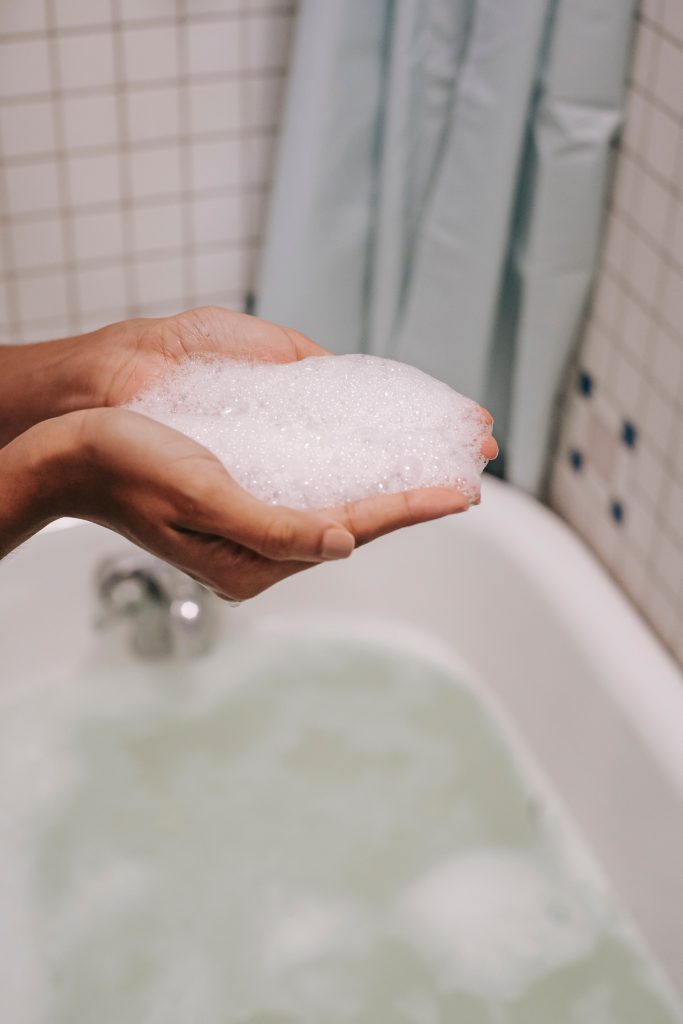
What Is The Difference Between Sodium Laureth Sulfate And Sodium Lauryl Sulfate for Hair?
Since SLS is an irritant, it can be pretty harsh for hair, especially hair that’s more dry, brittle, color-treated, or otherwise delicate or damaged. For this reason, some people might want to avoid SLS in their haircare.
While SLES might be “better” for hair in the short term because it’s milder and less irritating, we can’t actually recommend using SLES-containing haircare ingredients because of the risk of carcinogen contamination, as we talked about above.
Other Common Questions About Sulfate-Free Shampoo
Does Your Hair Have To Get “Used To” Sulfate-Free Shampoo?
There are a variety of reasons why one might wish to avoid shampoo that contains SLS, SLES, or other sulfates. If you have dry or brittle hair, color-treated hair, a sensitive scalp, or other health/sensitivity issues, you may want to consider taking these chemicals out of your personal care routine.
But what happens when you switch to sulfate-free shampoo? Does your hair need time to adjust?
Most of the time, the answer is no! Most sulfate-free shampoos are formulated to be just as effective as sulfate-containing products, and your hair shouldn’t have to adjust to it.
Does “Sulfate-Free” Always Mean “Safe?”
It’s important to be aware that just because a certain brand of shampoo is sulfate-free doesn’t mean it’s completely free of other potential toxins. Many sulfate-free shampoos still contain fragrance, parabens, and other ingredients that can cause long-term health problems. Watch out for greenwashing!
Does Sulfate-Free Shampoo Cause Hair Loss?
No. Actually, shampoos that DO contain sulfates are more likely to contribute to hair loss than sulfate-free ones because they can irritate and inflame your hair follicles, causing a breakdown.
Does Sulfate-Free Shampoo Lather?
This one totally depends on the brand. Some sulfate-free shampoos may lather just as well as their sulfate-containing counterparts, while others may not. It just depends on the formulation.
Remember that although all that lather and foam is nice, it doesn’t necessarily indicate cleanliness. You can get clean hair without all the suds. This is another situation where you may just have to do some trial and error to find the brand of shampoo that fits your preferences best!
Non-Toxic, Sulfate-Free Shampoos We Recommend
Now, without further ado, here are the brands we recommend that are free from SLS, SLES, and other potentially harmful sulfates.
The brands below are not only sulfate-free, but also free from other toxins like parabens, formaldehyde, etc.
Beautycounter

- Vegan & cruelty-free
- Has a luxurious mimosa scent
Public Goods

- Vegan & cruelty-free
- Made in New Jersey
- Comes in a bottle made with sugar cane and available in refills for less waste
Honest

- Comes in a variety of scents (Sweet Almond, Sweet Orange Vanilla, Lavender, and Fragrance-Free)
- Tear-free and suitable for babies and kids
- Doubles as a body wash
- Made in the USA
- Not Tested on Animals and No Animal Byproducts
- Also available at many big box and drug stores like Walmart, Target, CVS, Walgreen, etc.
Annmarie

- Comes with a 30-day money back guarantee
- MADESAFE certified
- Vegan & cruelty-free
- Heavy focus on the use of botanicals
- Made in the U.S.A.
100% Pure

- Comes in a variety of scents and hair needs (like volumizing, hair growth, and repair)
- Burdock & Neem is recommended for dandruff relief
- Vegan & Cruelty-Free
- Some formulations are made in the USA
Melanin Haircare

- Includes charcoal to help absorb toxins from the scalp
Acure
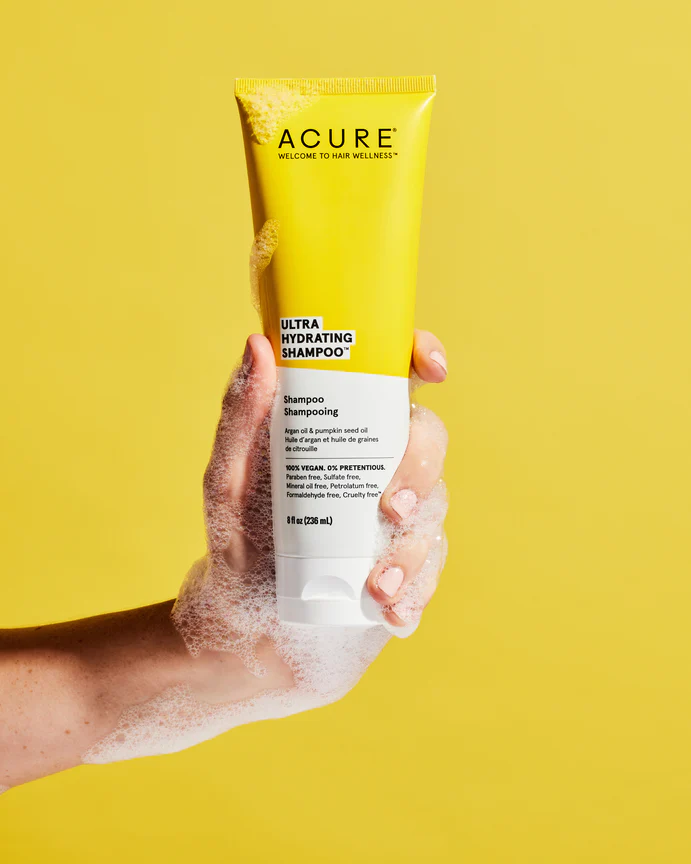
- Ultra Hydrating Shampoo is good for dry, damaged, and curly hair
- Curiously Clarifying Shampoo is good for all hair types
- Vegan & cruelty-free
- Also available at many big box and drug stores like Walmart, Target, CVS, Walgreen, etc.
Pipette
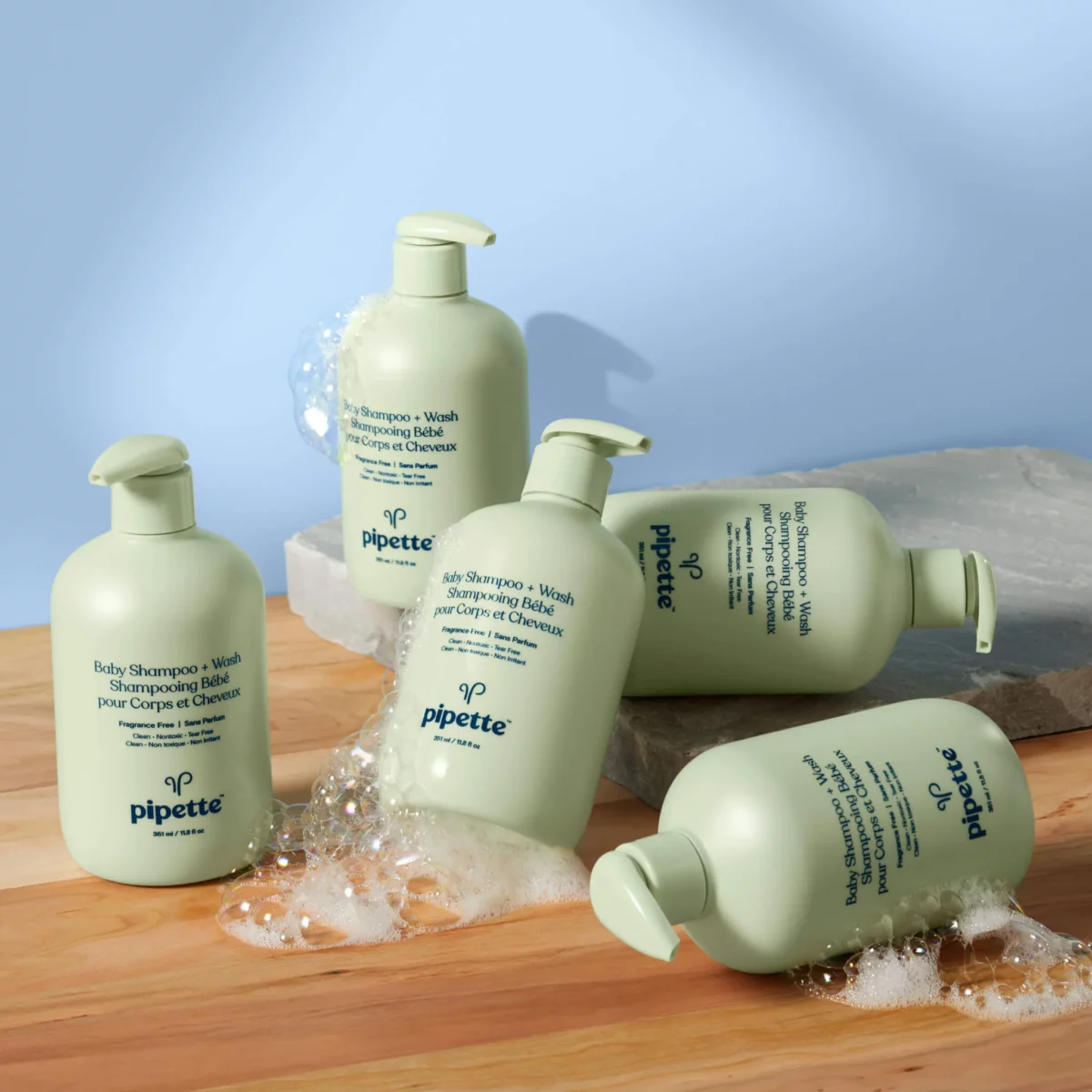
- Great for babies & kids
- Comes in Fragrance-free, Rose + Geranium, and Vanilla + Ylang Ylang
- Doubles as a body wash
- Vegan & cruelty-free
- Clinically-shown to improve skin hydration
Best Sulfate-Free Dandruff Shampoo
Unfortunately, it’s still quite difficult to find non-toxic, sulfate-free dandruff shampoo. Although, if you do struggle with dandruff, you might want to consider switching to a sulfate-free shampoo anyway (like one of the brands above). Since sulfates can be irritating to the skin, hair, and hair follicles, the sulfates could be causing or exacerbating your dandruff!
pHat 5.5

- pH balanced
- Contains ingredients like medical-grade Manuka honey and aloe vera to treat psoriasis, eczema, seborrheic dermatitis, and rosacea
Vanicream Free & Clear

- A maximum strength over-the-counter (OTC) zinc pyrithione shampoo that controls and reduces the symptoms of dandruff and seborrheic dermatitis
Conclusion: The next time you buy shampoo, check the label and skip the SLS & SLES!
We all want beautiful hair, but the bottom line is you have to take care of your scalp. Hair health starts at the roots. Finding the right shampoo that doesn’t strip your hair, but most importantly does not irritate or restrict hair growth is your best solution, so you may need to give up sodium laureth sulfate and sodium lauryl sulfate in your shampoo.
PIN IT:
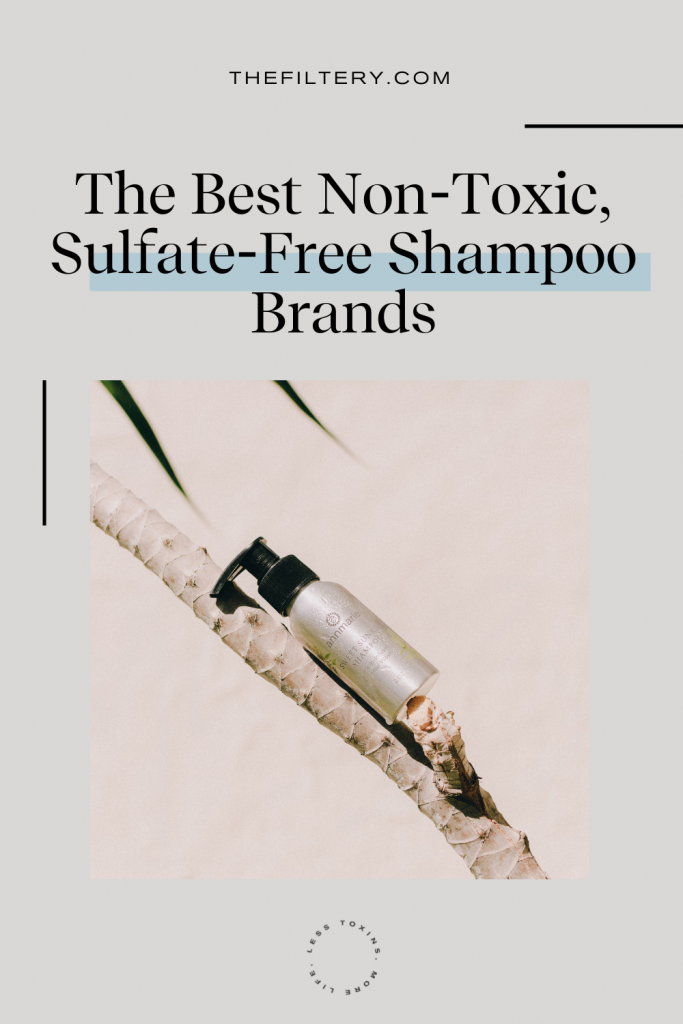



Image credits: Karolina Grabowska, Sora Shimazaki, Chandra Oh, product photos belong to respective brands


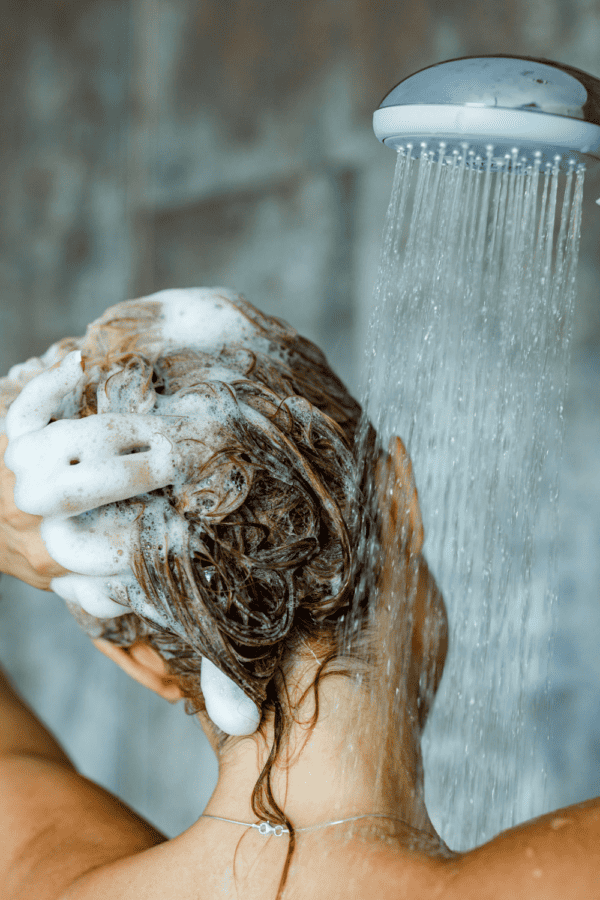
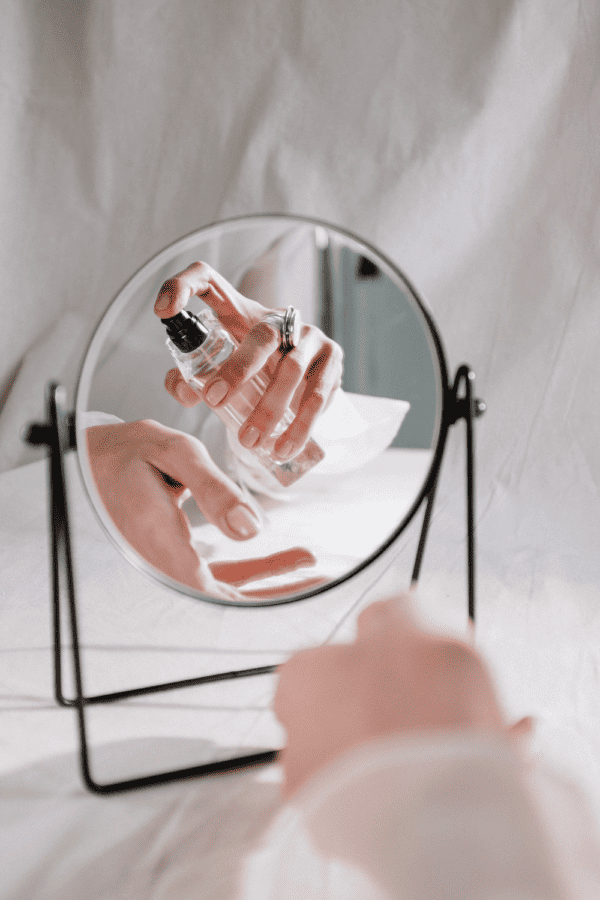
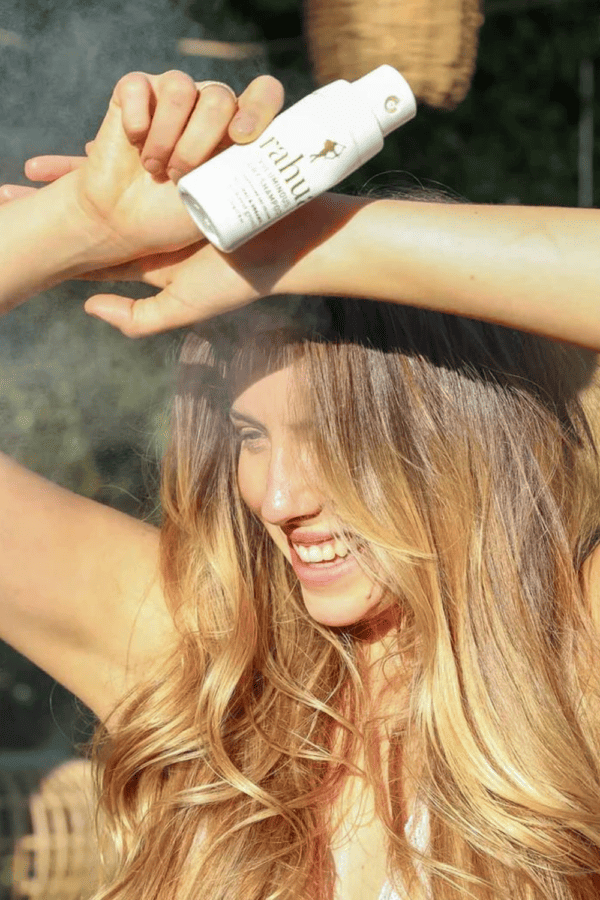
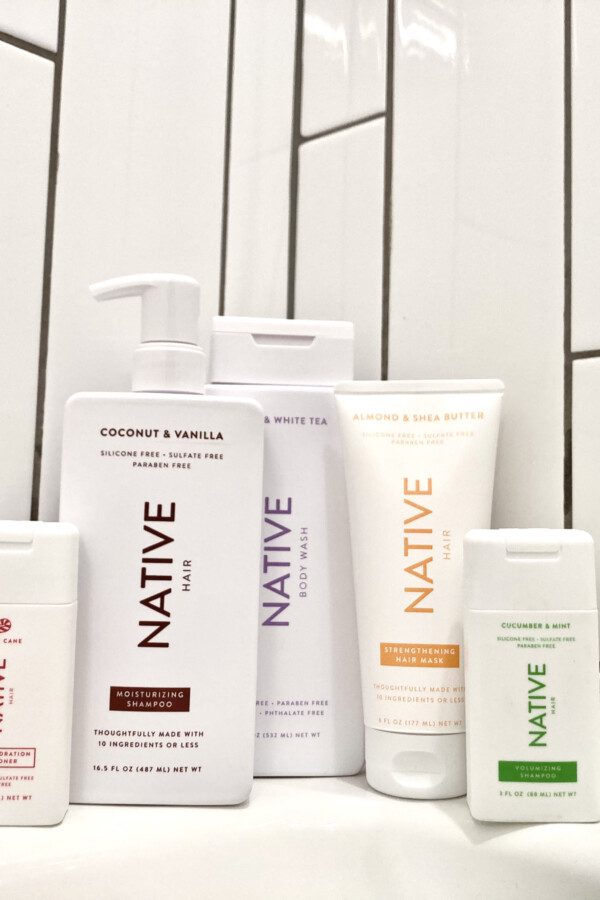
Your report Regard SLS & SLES very very Important and we like what you have there